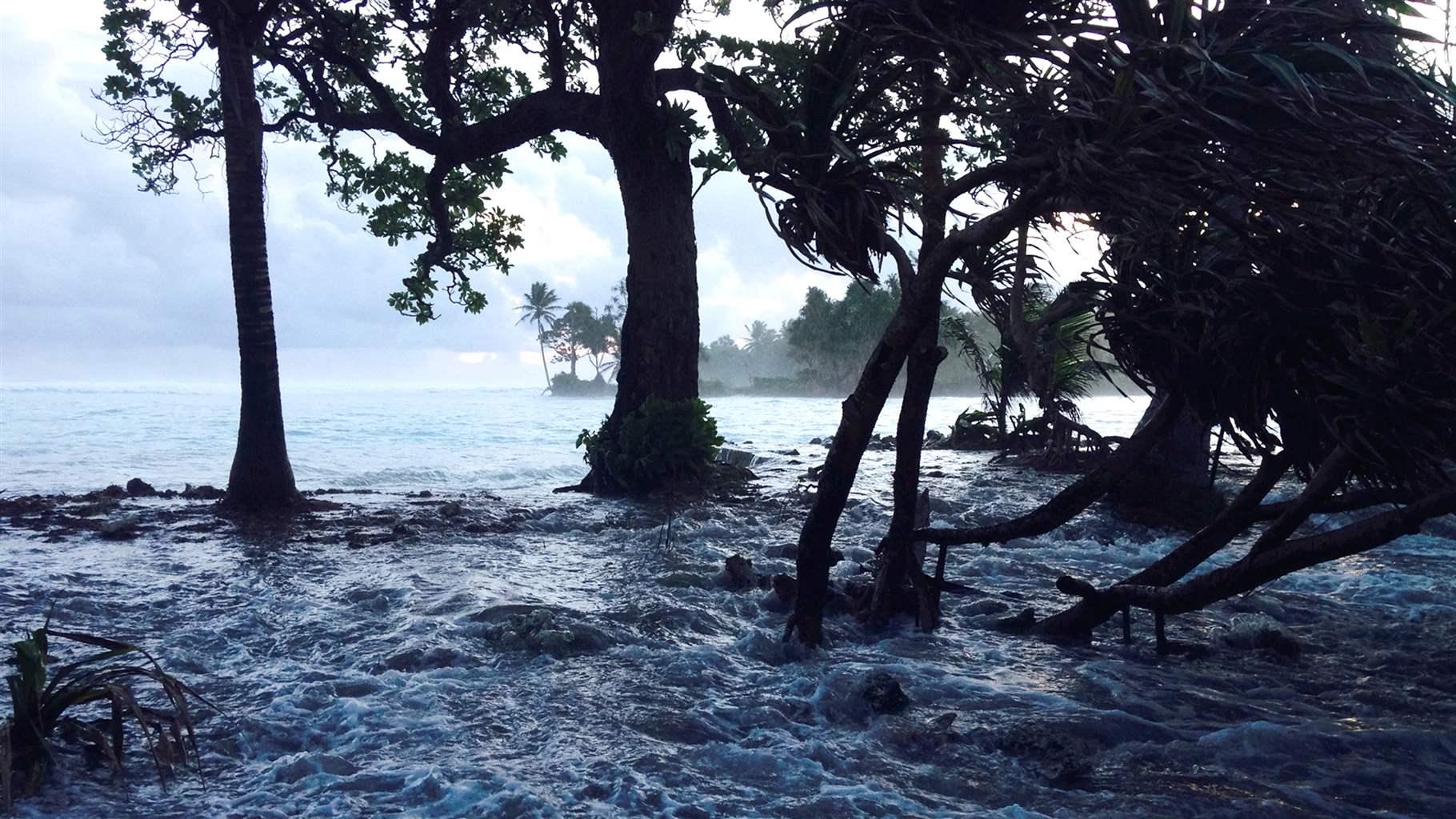U.N. Ocean and Climate Change Dialogue Explores Ways to Advance Climate and Biodiversity Goals
Annual convening of governments, civil society recognizes the ocean’s important role in climate action

The ocean has a critical role to play in stabilizing the Earth’s climate, absorbing 90% of excess heat and 40% of human-made carbon dioxide emissions. However, as these greenhouse gas (GHG) emissions have continued to rise, so too have impacts on the ocean: climbing temperatures, increasing acidification, coral bleaching events, melting ice caps, sea level rise, and more intense hurricanes. All of these, over time, may reduce the ocean’s capacity to withstand impacts and play a supporting role in mitigating climate change.
And while the ocean continues to bear the brunt of climate impacts, an opportunity remains to maximize its potential to offer solutions. A healthy ocean can contribute up to 21% of the emissions reductions needed to help meet the goals of the Paris Agreement, which caps global temperature rise at no more than 2 degrees Celsius (3.6 degrees Fahrenheit). This can be achieved by advancing a whole-of-ocean approach including technical solutions like expanding offshore wind energy capacity, and nature-based solutions like protecting coastal wetland habitats.
As the baseline of scientific understanding has grown, decision-makers have introduced more policy options and financing arrangements that support climate adaptation, which centers on adjusting to the impacts of climate change, and mitigation, which aims to prevent and reduce additional GHG emissions, through marine-based solutions. A recent upwelling of support for ocean-climate action has catalyzed calls for further collaboration on the topic.
Building on the success of the inaugural Ocean and Climate Change Dialogue at the United Nations Framework Convention on Climate Change (UNFCCC), governments agreed that discussions should occur annually going forward. These dialogues will allow governments and civil society to routinely exchange ideas on the best ways to use marine-based solutions to climate change.
As of June 6, 2022, the UNFCCC Ocean-Climate Dialogue had received 47 submissions (to read them, search “ocean”) from governments, U.N. agencies, and civil society exploring for these dialogues moving forward. In analyzing the submissions, Pew discovered the overwhelming majority focused on building adaptive capacity, reducing emissions through marine-based climate solutions, and increasing financing for ocean-climate action. Many submissions offered concrete proposals to deepen understanding and scale action on these fronts, shifting from theoretical concepts to on-the-ground case studies.
Thirty-five submissions highlighted the critical need to address climate impacts on the ocean through climate adaptation, especially in the most vulnerable communities. As unabated GHG emissions continue to rise, unprecedented impacts—like sea level rise and deoxygenation—have worsened. Submissions showed wide agreement for focusing on approaches that enhance the adaptive capacity of those whose lives and livelihoods rely on a healthy, sustainable ocean. Further, several elevated the role that preserving and restoring marine habitats can play to support ocean health and biodiversity, in parallel with efforts to reduce emissions across economies.
Climate mitigation, with its focus on preventing and reducing GHG emissions, was another popular topic that featured in 28 submissions. Twenty-two of these specifically called on the need to protect and restore blue carbon habitats, namely mangroves, seagrasses, and salt marshes, for their high carbon sequestration and storage benefits alongside their value to habitat and livelihoods. Five of those submissions further stressed that blue carbon-related efforts must work in concert with a decrease in carbon emissions, not as a replacement or an offset.
Additional marine-based solutions were suggested as a means of reducing GHG emissions. Seventeen submissions pointed to improving GHG efficiency in fisheries and aquaculture as a further means of reducing emissions from ocean-based activities. Eleven underscored the need to reduce GHG emissions from the shipping and navigation industry. Seven called for increasing marine-based renewable energy like offshore wind.
Although the submissions showed wide agreement that adaptation and mitigation are of paramount importance, advances in those areas will be hampered without adequate financing to support their implementation. Investment strategies and funding mechanisms for the ocean, also known as blue financing, as well as technical resources, are needed to implement adaptation and mitigation measures. Some finance mechanisms to support ocean-climate action were noted, including the Green Climate Fund, Global Environment Facility, and Adaptation Fund. However, 29 submissions stated those mechanisms should be expanded, access should be streamlined, and financing cycles should be more transparent and predictable.
Submissions also called for research into emerging financing trends and investment opportunities as well as analyses on funding gaps. Furthermore, there was a strong acknowledgment that funding access must be increased for developing countries and vulnerable coastal communities.
Importantly, 21 submissions identified the need to better engage with historically marginalized groups such as Indigenous peoples and local communities to integrate their traditional knowledge and experience into ocean-climate solutions, as they are on the front lines of climate impacts and have historically been left out of important international policy discussions.
What’s clear is that momentum continues to build for ocean-climate action around the globe. Bridging gaps between science, policy, and finance will be key to ensuring success as decision-makers evaluate all possible avenues to reduce emissions, build adaptive capacity, and ensure equity in decision-making and benefit-sharing. Marine-based solutions, alongside rapid emissions reductions across economic activities, can play a valuable role in the fight for a healthy, just, and sustainable future.
Lauren Swaddell is a senior associate and Courtney Durham is an officer working on The Pew Charitable Trusts’ international conservation efforts.







